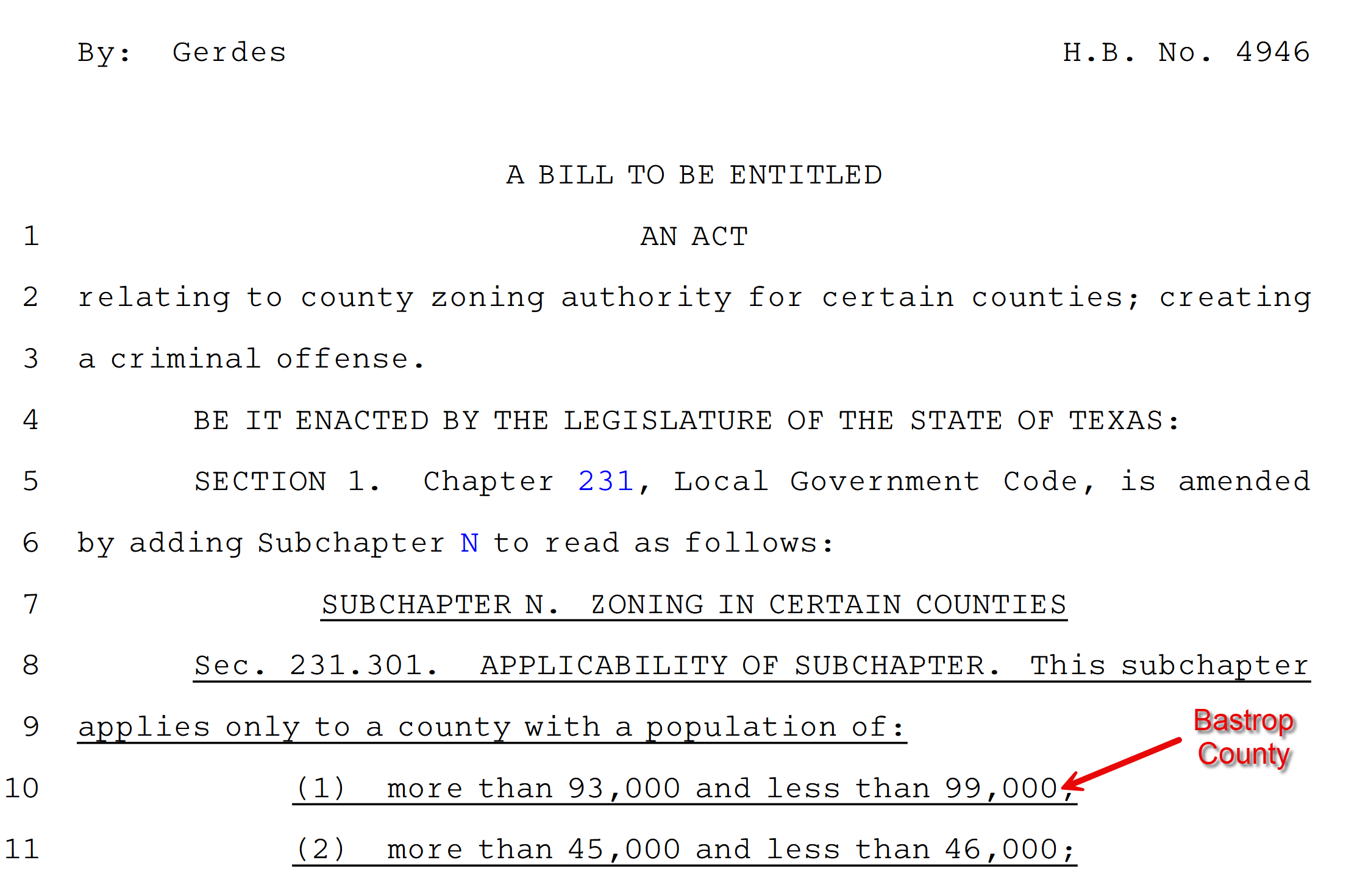March 15 update: House Bill 4946 has not yet been assigned to a committee. I’ll update this post once this happens with committee contact information.
Last legislative session, I wrote a bill that would allow the County Commissioners, if they so chose, to manage growth on unincorporated lands. Cities already have the right to do so, but Bastrop County is more than 97% unincorporated land, so no future planning allowed. We see it and feel it.
Representative Stan Gerdes worked with me on the bill. It had the unanimous support of the Bastrop County Commissioners Court. It made it to a committee where it died. That bill would have applied to smallish counties that bordered on the 6 counties (at the time) with populations over one million.
 The bill is back this session. Special thanks to Rep Gerdes and his staff for, once again, shepherding this through the process. Bill number 4946 is exactly the same as the 2023 bill, but now applies only to the five counties in HD17: Bastrop, Burleson, Caldwell, Lee and Milam.
The bill is back this session. Special thanks to Rep Gerdes and his staff for, once again, shepherding this through the process. Bill number 4946 is exactly the same as the 2023 bill, but now applies only to the five counties in HD17: Bastrop, Burleson, Caldwell, Lee and Milam.
Below is a chart showing the amount of unincorporated land in each, and their rate of growth from the 2010 to 2020 Census. Bastrop County grew at a whopping rate of 31% in just 10 years.
This bill would allow planning for roads, infrastructure, water resources and other affects of rapid development. It would go a long way in keeping Bastrop County from being East Austin. Please contact Representative Stan Gerdes office in support of this bill: Contact form or by phone: (512) 463-0682.
Key points in House Bill 4946:
- This is enabling legislation, meaning a county does not have to do it if they don’t want to.
- If the governing body chooses not to do this, there is a petition process to get the question to the ballot so voters can decide.
- The commissioners court must appoint a Planning Commission which will adopt a comprehensive plan for the growth and development of the county only after noticed public hearing(s) on that plan.
- The commissioners court must also hold noticed public hearings on the plan and regulations before final adoption.
- Current non-commercial agricultural and ranching operations are unaffected. Commercial agricultural and ranching operations may be reasonably restricted only “to protect the public health, safety, peace, morals, and general welfare”.
- Protection of historic designated areas keep the current protections.
- Affected property owners may protest adoption under rules set forth in the bill.
- A commissioners court may grant special exceptions due to hardship.
- The Act would take effect September 1, 2025.